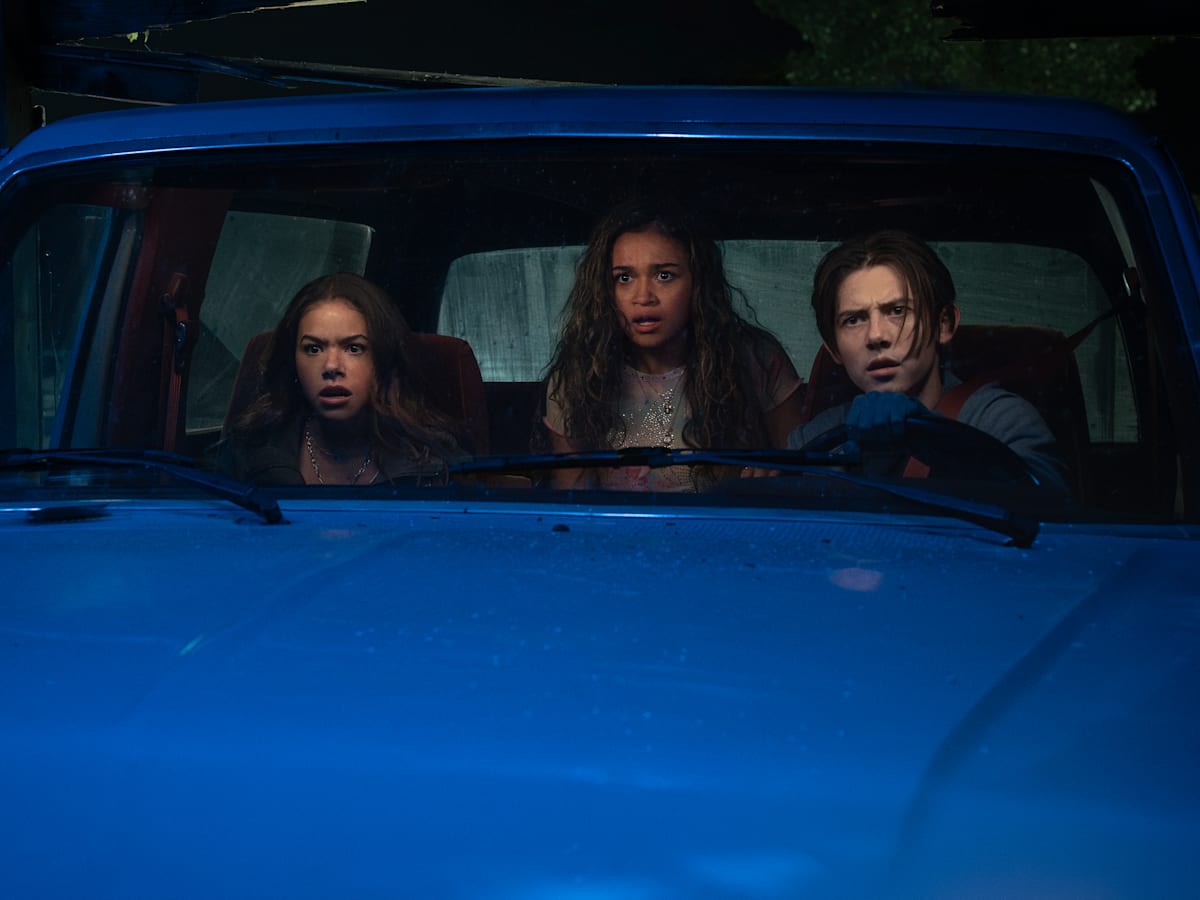Audiences find comfort in films where they know what to expect. When I pressed play on Netflix’s new original film Time Cut (2024), I was confident that my next ninety minutes would comprise of high school stereotype characters, dialogue that does a poor job capturing Gen-Z humor, and a fairly simplistic plot, all consistent features of the young-adult content produced by the hit streaming network. The film features a cast already familiar with the signature Netflix Original style, starring Madison Bailey, most known for her role in the hit drama Outer Banks, and Antonia Gentry, one of the titular characters in Ginny and Georgia. However, even with realistic expectations set for the film’s quality, I still found myself surprised at the caliber of the film’s writing, which managed to underperform my already-low forecast.

Time Cut’s story is centered around a 2024 teen, Lucy (Madison Bailey), who is mysteriously transported 19 years back in time to 2003, only two days before the murder of her older sister, Summer (Antonia Gentry). Lucy struggles to decide how to act upon the knowledge that she has, especially after Quinn, one of Summer’s classmates, reminds her of the detrimental implications that can result from altering the past. The film’s central dilemma becomes whether Lucy should reveal to Summer her impending death and attempt to prevent it from happening or let events unfold as they always had. Further complicating Lucy’s choice is the fact that her birth was a direct result of the loneliness her parents faced after Summer’s death, meaning that a timeline where Summer lived would be one in which Lucy did not exist. Or, at least, that’s how the conventions of time travel are presented to us for most of the film.
After Lucy gets to know Summer, the two begin to form a sisterly friendship, increasing Lucy’s pressure. Eventually, Lucy decides that she cannot stay silent about the matter and admits to Summer that her death was to be the next and final killing in a series of murders/attempts that had taken place over the previous two days.
Here is where the plot grows increasingly frustrating. Instead of evacuating, the two girls decide the best course of action at this point is to attempt to catch the murderer and hatch a plan where Summer goes to the exact spot where Lucy knows she will be killed (this is now the third time Lucy has thought it was a good idea to face the murderer head on, putting herself in unnecessary danger that had me ready to scream through the screen). It is then revealed that the murderer is a version of Quinn from the future and he had built the time machine Lucy had used to get to 2003 as an adult to go back to his high school days in exact revenge on Summer because she did not reciprocate his feelings. Lucy, 2003-Quinn, and Summer team up and defeat 2024-Quinn, altering the present to create a world where Summer never dies. However, Lucy does not vanish! She returns to 2024 to find her parents simply do not know who she is, decides her life was better in 2003 anyway, and returns to the past to live permanently.

The primary issue I had with the film was that it established a set of rules for how time travel functioned, created a conflict based on those rules, and then ultimately threw the rules out the window for an ending that completely defied the previously-established logic. If Lucy’s parents never created her, how does she exist? And what kind of message does it send to have Lucy flee her problems by remaining in a Y2K utopia instead of confronting them?
The two main themes present in the film were family relations and identity/purpose and I felt both were not properly addressed with the films conclusion. Throughout the film, Lucy struggles immensely with feeling disconnected from her parents, as they view her as an inadequate replacement to Summer. However, when the film ends and Lucy is in 2003, though they have meet in the context of Lucy being one of Summer friends, she has essentially set herself up to live life without having parents? Additionally, the film constantly comes back to Lucy’s obsession with space, which is a scientific manner for her to explore her emotions of feeling lost and without a greater purpose. Based on this, the film’s conclusion would suggest that Lucy’s true purpose was to live in 2003, abandoning all she had worked for academically. Again, I felt this expressed a strange message to young viewers (the film’s audience) about escaping your problems as opposed to facing them.
Overall, I still wouldn’t say that I felt watching this movie was a waste of my time, as I personally find crappy Netflix Original to be a comfort genre, but I also remain frustrated with its messy attempt to tackle time travel.